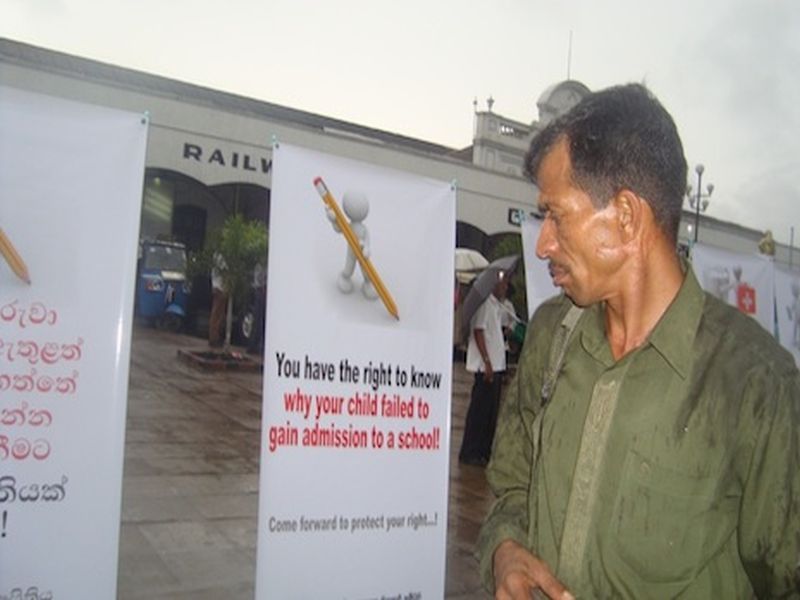Sri Lanka Parliament approves the RTI Bill

Advocates of the Right to Information (RTI) and the media have reported that Parliament gave its approval to the RTI Bill that was introduced earlier this year. According to media reports, several amendments were incorporated in the Bill during the debate in Parliament.
But for the long drawn ethnic conflict, Sri Lanka would have been the second country in South Asia to enact a national RTI law if efforts made in 2003-04 had reached fruition. As we wait for clarity on the nature of amendments passed, as well as the assent of the President to the Bill, Sri Lanka becomes the 108th country in the world to pass a national level information access law. That leaves only Bhutan in South Asia without a national RTI law. Notably, countries without RTI laws are becoming a smaller and smaller minority on the planet.
CHRI congratulates the Members of Parliament, the Government and RTI advocates in civil society and the mass media for working together to craft a law that gives effect to the fundamental right of citizens to seek and receive information. Being the only country in South Asia to join the Open Government Partnership (OGP), Sri Lanka has taken a major step to deliver on its commitments under this partnership.
Since 2003, CHRI has worked closely with the advocates of the RTI law providing them technical assistance and advice.
The salient features of the RTI Bill tabled in Parliament in March 2016 are as follows:
1) Only citizens of Sri Lanka can seek and obtain information under the law. Bodies, both incorporated and unincorporated, where at least 3/4th of the members are Sri Lankan citizens, can also seek and receive information. Reasons need not be given for seeking information;
2) All organs of the State- Parliament, Executive and Judiciary are covered by the law. The police and defence forces, public sector corporations, local authorities, private entities carrying out a public function or providing a public service under an agreement or license from Government or local authorities are also covered;
3) There are specific provisions for proactive information disclosure including details of developmental projects of monetary values specified in the law;
4) The time limit for making a decision on a request is 21 days which may be extendable under certain circumstances;
5) Several clauses containing exemptions to disclosure contain harm tests. Even exempt information will have to be disclosed if public interest in so doing outweighs the harm to the protected interests;
6) Decisions of refusal to provide access to information are subject to a two-tier appeals system. The first tier of appeal is internal to the public authority;
7) A 5-member RTI Commission appointed by the President of Sri Lanka on the recommendations of the Constitutional Council will be the second tier of appeals. Decisions of the Commission may be challenged before the Court of Appeal. In any appeal proceeding, the burden of proving that one acted in accordance with the provisions of the law is on the public authority.
8) The RTI Commission is empowered to initiate prosecution of errant officials for committing offences under the law such as destroying information that was the subject matter of a request, not cooperating with the Commission in its proceedings or not complying with its decisions. For minor contraventions of the law such as refusing to receive information requests, rejecting a request without giving reasons, stipulating excessive fees the errant officer will attract disciplinary action;
9) The public authorities have a duty to report to the RTI Commission about the number of requests received and disposed including the manner of their disposal every year; and
10) There will be no civil or criminal liability on any officer for acting in good faith while performing any function or duty under the RTI law.